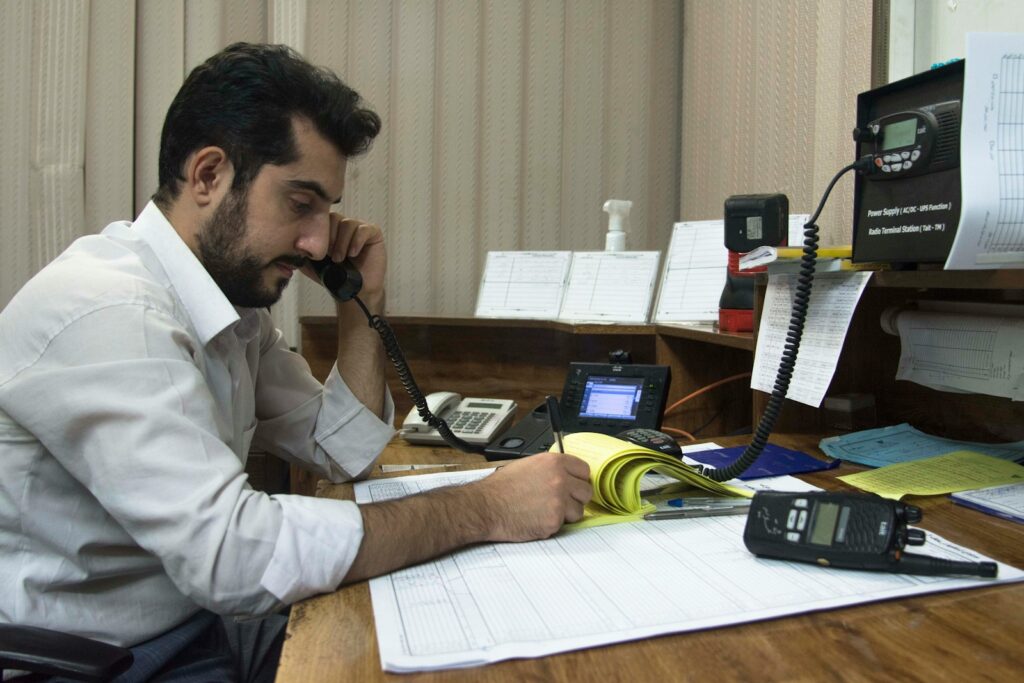
Not every workplace takes advantage of people in obvious ways. Sometimes it’s small patterns that creep in quietly. Long hours get framed as loyalty or perks are used to cover up what’s missing. These practices are often dressed up as opportunities but they leave workers giving more than they get. Learning to spot them helps you protect your time, your energy and the value you bring to your job.
Unpaid Overtime

One of the oldest tricks is making long hours look normal. You stay late “to help out,” but no one mentions extra pay. Before long, evenings and weekends disappear into work you’re not compensated for. What starts as occasional dedication becomes an expectation. The company gains free labor while you lose rest and balance. Real commitment shouldn’t mean trading personal time for nothing in return.
Vague Promotion Promises

Some managers dangle promotions like a carrot, hinting that better pay or a new title is “just around the corner.” You work harder, hoping the promise comes true but it never does. The company gets extra effort for free while you stay stuck in the same role. Years can pass before you realize the promise was never real. It’s a subtle way to keep you loyal without giving anything back.
“Team Spirit” Pressure

After-hours events or mandatory bonding activities are often called culture but they really blur boundaries. You’re expected to join in, even if you’re drained or need time for yourself. If you decline, labels like “not a team player” surface. Genuine teamwork doesn’t require constant forced participation. When togetherness becomes another hidden job requirement, it’s no longer about culture — it’s about control.
Inflated Job Titles

“Coordinator,” “specialist,” “associate manager” — titles like these sound impressive but often mean nothing. The work stays the same and the paycheck doesn’t change yet employees are meant to feel like they’ve advanced. It’s a cheap way for companies to hand out recognition without offering real rewards. A title can look great on LinkedIn but it won’t pay your rent. Real progress should show up in your salary, not just your email signature.
Creeping Workloads

Work rarely piles on all at once. Instead, little by little, extra tasks get added to your plate. Soon you’re doing two jobs under one title and paycheck. If you question it, you’re told to “be flexible” or “pitch in for the team.” The slow buildup makes it harder to push back. What looks like dedication on your part is really the company squeezing more work out of fewer people.
Exploiting Passion

Companies love when people are passionate about their work, because it makes exploitation easier. Passionate employees often volunteer extra time, skip breaks, or accept lower pay “for the mission.” Businesses benefit from that dedication but rarely compensate fairly for it. While caring about your work is admirable, true appreciation should appear in raises and benefits, not just in words. Passion shouldn’t be used to excuse mistreatment.
Calling Work a “Family”

Being told your workplace is “like family” sounds comforting, but it often hides a trap. Families don’t expect you to stay late every night or accept less pay for the same effort. Yet in these companies, guilt is used as motivation. Say no, and it feels like betrayal. True families give without conditions but here “family” becomes an excuse to demand sacrifices without offering real support in return.
Unpaid Internships

Internships are meant to provide learning opportunities, yet unpaid versions often function as free labor. Interns contribute real work that benefits the company but they receive little more than a line on a resume. For many, the lack of pay makes participation financially impossible. The result is exclusion and exploitation, where companies save money while interns struggle to keep up. Training shouldn’t come at the cost of fairness.
Overloaded Salaried Roles

Being on salary sounds like stability until the reality sets in. Employers often treat it as permission to pile on work without extra pay. Nights blur into mornings, weekends vanish and suddenly you’re juggling the workload of multiple jobs. Instead of rewarding effort, the setup punishes those who can’t draw hard boundaries. Workers are told they’re fortunate yet the real winner in this arrangement is always the company.
Unrealistic “Experience” Requirements

Job descriptions often demand five years of experience for entry-level roles. Inside companies, advancement gets blocked by arbitrary qualification rules. These inflated requirements keep salaries low and prevent workers from moving up. Instead of training current staff, companies expect more for less, benefiting from talent without rewarding it. Workers are left stuck while the company avoids offering pay raises or promotions under the excuse of “standards.”
Unpaid Training Sessions

Training should be about growth, but many employers require it outside regular hours with no pay. Employees attend workshops or complete courses at night, giving up personal time for free. The company gains more skilled workers but the employee shoulders the cost. This tactic dresses unpaid overtime as “development.” Real growth opportunities should never come at the expense of fair compensation for time invested.
Always-On Expectations

Phones and laptops make it easy for companies to expect constant availability. Emails, calls and messages arrive at all hours, creating pressure to respond immediately. What starts as an occasional text becomes a steady stream of after-hours work. Employees never fully switch off and rest becomes impossible. A healthy job allows time to disconnect. Being always available only benefits the company, not the worker’s wellbeing.
Tiny Raises Framed as Generous

Raises are often celebrated, but many barely cover inflation. A two percent increase may look like gratitude yet workers still lose ground financially as costs rise. By framing small bumps as rewards, companies avoid real raises while keeping people loyal. Over time these rewards erode stability. Appreciation isn’t measured by token percentages. Real value comes from pay that grows alongside living expenses.
“Flexible” Work That Isn’t

Flexibility is advertised as a perk but sometimes it hides instability. Remote employees end up paying for internet, electricity, and equipment. Flexible schedules can also mean unpredictable shifts that disrupt routines. What sounds empowering in job descriptions often becomes stressful in practice. Flexibility should support balance, not shift costs and uncertainty onto employees. When it doesn’t, it’s another trick dressed up as opportunity.
Perks Instead of Pay

Free coffee, game rooms or casual Fridays are nice touches but they don’t replace fair salaries. Many companies highlight perks to distract from missing benefits or low compensation. Workers may feel grateful in the moment, but perks don’t cover rent or healthcare. They’re surface-level fixes that keep people comfortable enough not to push for more. Security and fair pay are worth far more than novelty perks.

